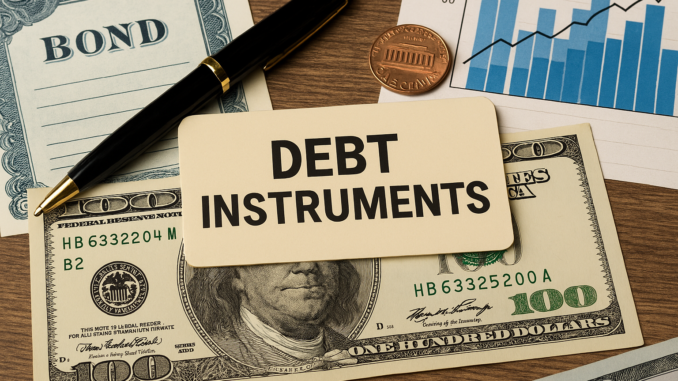
Discover the benefits of investing in Treasury Bills (T-Bills), a low-risk, short-term government security. Learn how Treasury Bills work, their advantages, and how to get started.
Introduction to Treasury Bills
A Treasury Bill (T-Bill) is a short-term debt instrument issued by the government to raise funds. With maturities ranging from a few days to one year, T-Bills are renowned for their safety and liquidity, making them a popular choice for conservative investors. This article explores how Treasury Bills work, their benefits, and why they might be the right addition to your portfolio.
How Treasury Bills Work
Treasury Bills are sold at a discount to their face value and mature at par. For example, you might buy a 10,000T−Bill for 10,000T−Bill for 9,800, earning $200 upon maturity. The U.S. Treasury conducts weekly auctions where investors can purchase T-Bills directly or through brokers.
Auction Process
- Competitive Bidding: Institutional investors specify the discount rate they’re willing to accept.
- Non-Competitive Bidding: Individual investors accept the market-determined rate, guaranteeing purchase.
Key Features of Treasury Bills
- Short-Term Maturity: Terms include 4 -week, 13 -week, 26 -week, and 52 -week options.
- Low Risk: Backed by the U.S. government, T-Bills are virtually risk-free.
- High Liquidity: Easily sold in secondary markets if cash is needed before maturity.
- No Interest Payments: Returns come from the difference between purchase price and face value.
Benefits of Investing in Treasury Bills
- Capital Preservation: Ideal for safeguarding principal while earning modest returns.
- Predictable Returns: Know your exact yield at purchase.
- Tax Advantages: Exempt from state and local taxes; only federal income tax applies.
- Portfolio Diversification: Balances riskier investments like stocks or cryptocurrencies.
How to Invest in Treasury Bills
- Treasury Direct.gov: Open an account to participate directly in auctions.
- Brokerage Accounts: Purchase T-Bills through brokers or ETFs focused on government securities.
Risks to Consider
- Inflation Risk: Returns may lag behind inflation during high-rate periods.
- Opportunity Cost: Higher-risk assets might offer better returns over time.
- Reinvestment Risk: Rolling over maturing T-Bills may yield lower rates in a declining interest environment.
Conclusion
Treasury Bills remain a cornerstone of low-risk investing, offering stability and liquidity. Whether you’re building an emergency fund or diversifying your portfolio, T-Bills provide a secure way to park funds short-term. Visit TreasuryDirect.gov to explore current rates and start investing today.
Call to Action: Consult a financial advisor to determine how Treasury Bills can align with your investment goals.

T-Bills are a great option for those looking for low-risk investments. They offer stability and are easy to liquidate if needed. The fact that they are backed by the government adds an extra layer of security. Starting with T-Bills could be a smart move for conservative investors. How can T-Bills specifically help in diversifying a portfolio effectively?
Treasury Bills are indeed a safe and reliable investment option for those looking to preserve capital while earning a modest return. Their short-term nature and government backing make them an attractive choice for risk-averse investors. Understanding how T-Bills work and their potential benefits can help you make informed decisions about your financial strategy. It’s also worth noting that TreasuryDirect.gov provides a straightforward platform to explore and invest in T-Bills directly. How do Treasury Bills compare to other short-term investment options in terms of risk and return?
T-Bills seem like a solid choice for anyone looking to minimize risk while still earning a return. The fact that they’re backed by the government makes them feel incredibly secure, especially in uncertain economic times. I appreciate how they’re short-term and liquid, which is perfect for someone like me who might need access to funds quickly. The example of buying a $10,000 T-Bill for $9,800 and earning $200 at maturity is straightforward and easy to understand. I’m curious, though, how do T-Bills compare to other low-risk investments like bonds or high-yield savings accounts? Also, are there any hidden fees or risks I should be aware of before diving in? Overall, this seems like a great option for building an emergency fund or diversifying a portfolio. What’s the best way to stay updated on current T-Bill rates and auction schedules?
https://www.treasurydirect.gov/marketable-securities/treasury-bills/
Investing in Treasury Bills seems like a solid strategy for those who prioritize safety and liquidity. The fact that they are backed by the government adds a layer of trust that’s hard to ignore. I appreciate how they offer a straightforward way to earn a return without taking on significant risk. However, I wonder if the returns are substantial enough to keep up with inflation in the long run. Could T-Bills still be a viable option in a high-inflation environment? I’d love to hear more about how they compare to other low-risk investments like bonds or high-yield savings accounts. What’s your take on balancing safety and returns when building a portfolio?
Investing in Treasury Bills seems like a solid choice for those who prioritize safety and liquidity. The fact that they are backed by the government adds a layer of trust that’s hard to ignore. I appreciate how they can be a part of both emergency funds and portfolio diversification. However, I wonder if the returns are substantial enough to keep up with inflation in the long run. Could T-Bills still be a good option in a high-inflation environment? Also, how accessible are they for small-scale investors? I’d love to hear more about the practical steps to get started, especially for someone new to investing. What’s your take on balancing T-Bills with other investment options for better returns?
Investing in Treasury Bills seems like a solid strategy for those who prioritize safety and liquidity. The fact that they are backed by the government adds a layer of trust that’s hard to ignore. I appreciate how they offer a straightforward way to earn a return without taking on significant risk. However, I wonder if the returns are substantial enough to keep up with inflation in the long run. Could T-Bills still be a viable option in a high-inflation environment? Also, how do they compare to other low-risk investments like bonds or high-yield savings accounts? I’d love to hear more about how T-Bills can be integrated into a broader investment strategy. What’s your take on balancing T-Bills with more aggressive investments for long-term growth?
T-Bills seem like a solid choice for anyone looking to minimize risk while still earning a return. The fact that they’re backed by the government makes them incredibly reliable, especially in uncertain economic times. I’m curious, though, how do T-Bills compare to other low-risk investments like bonds or high-yield savings accounts? The liquidity aspect is appealing, but are there any hidden downsides, like lower returns compared to other options? I’d love to hear more about how T-Bills can be integrated into a broader investment strategy. For someone just starting out, would you recommend T-Bills as the first step, or should they be part of a more diversified approach from the beginning? What’s your take on the current rates and whether they’re worth investing in right now?
T-Bills seem like a solid choice for anyone looking to minimize risk while still earning a return. The fact that they’re backed by the government makes them feel incredibly secure, especially in uncertain economic times. I’m curious, though, how do T-Bills compare to other low-risk investments like bonds or high-yield savings accounts? The example of buying a $10,000 T-Bill for $9,800 and earning $200 at maturity is straightforward, but how does this return stack up against inflation? Also, are there any hidden fees or complexities when purchasing T-Bills through brokers? I’m considering adding T-Bills to my portfolio, but I’d love to hear from someone who’s already invested in them. What’s your experience been like, and would you recommend them for someone just starting out?
T-Bills seem like a solid option for those who want to keep their money safe without taking on too much risk. The idea of buying something at a discount and getting the full value later is pretty appealing. I also like how liquid they are—easy to buy and sell when needed. The government backing definitely adds a layer of trust, especially for someone who’s just starting with investments. But how do T-Bills compare to other low-risk options like bonds or savings accounts? Would it make sense to split investments between T-Bills and other options for better diversification? Lastly, do you think the return on T-Bills is worth it compared to inflation rates these days?